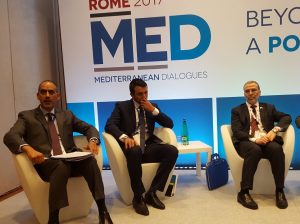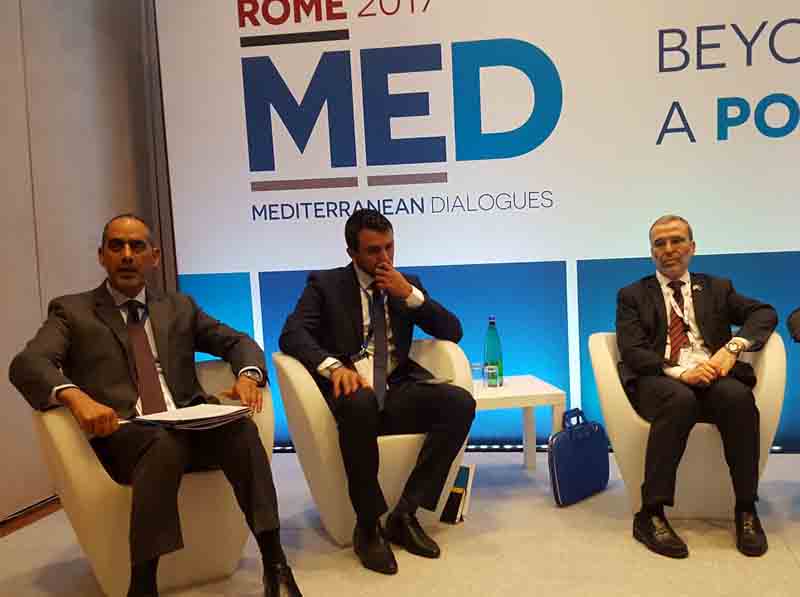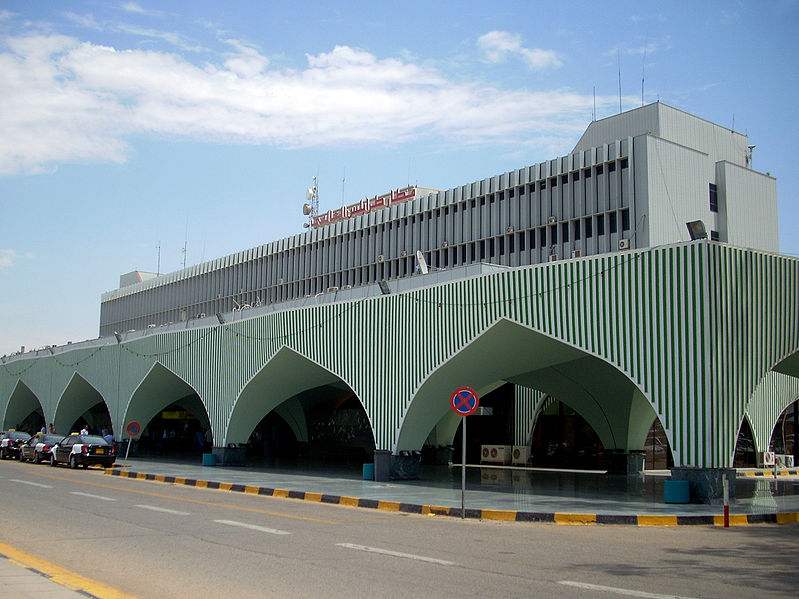By Sami Zaptia.

Rome, 1 December 2017:
The Central Bank of Libya (CBL) stepped in to fill an urgent need after the Libyan economy suffered two shocks in 2014 that led to unprecedented deficits. The CBL stepped in to give Libya’s political process a chance, explained CBL board member Tarik Yousef.
The first shock was the fall in Libya’s oil production by 60-70 percent and a 70 percent drop in international crude oil prices.
Yousef was speaking at a session entitled ”Libya: Enhancing the Economic Prospects” in Rome at the 2017 Mediterranean Dialogues conference and shared a panel with a number of Libyan officials including NOC chairman Mustafa Sanalla. UNSMIL head Ghassan Salame was present in the audience.
Yousef said that the CBL expected the Libyan Political Agreement – signed by the contending Libyan parties in the Moroccan city of Skhirat in December 2015 – to solve the country’s problems of legitimacy, authority and budgetary needs. The LPA has improved the situation in Libya marginally, he added which enabled the passing of a state budget in 2016.
The state budget provided money for the NOC to enable it to increase its oil production which was key to improving the economic status of the country which imports 80 percent of its food consumption, Yousef said.
Yousef was hopeful that UNSMIL head Salame would succeed in achieving a political solution for Libya, but he felt that the CBL will continue to be the primary budget provider in the next few years
The CBL, in consultation with the IMF and a number of international bodies, was ready to devalue the Libyan dinar but only in unison with a number of government policy measures which include subsidy reform, he explained. He expected devaluation to take place within the next 12 months.
Yousef said that the CBL and the Presidency Council and other Libyan state authorities (the Audit Bureau) had now reached agreement on the way forward. Answering a question from Libya Herald he said that there was no policy tension between the CBL, PC and Audit Bureau, but admitted that they had spent quite a bit of time on ”sequencing”.
He said that discussions were focused on ”policy effectiveness” rather than the public perception of policy and legitimacy differences. He did add that at one level ”everything is political and it is not”.
He admitted that the various Libyan authorities could not operate alone and needed to coordinate their actions if the economic situation was to be improved. The government needs to be effective, he added.
In the short term, economic and financial policy was about stabilization and reconstruction could come in 1-2 years, he explained.
He admitted that the banking system was not functioning revealing that around 50 percent of Libyan banks were closed. Security was needed to improve the economy and to improve life generally, he added.
He revealed that 80 percent of Libya’s subsidies, estimated at US$ 4-5 bn per annum, are going abroad and that devaluing the Libyan dinar alone would not bring economic stability to Libya.










